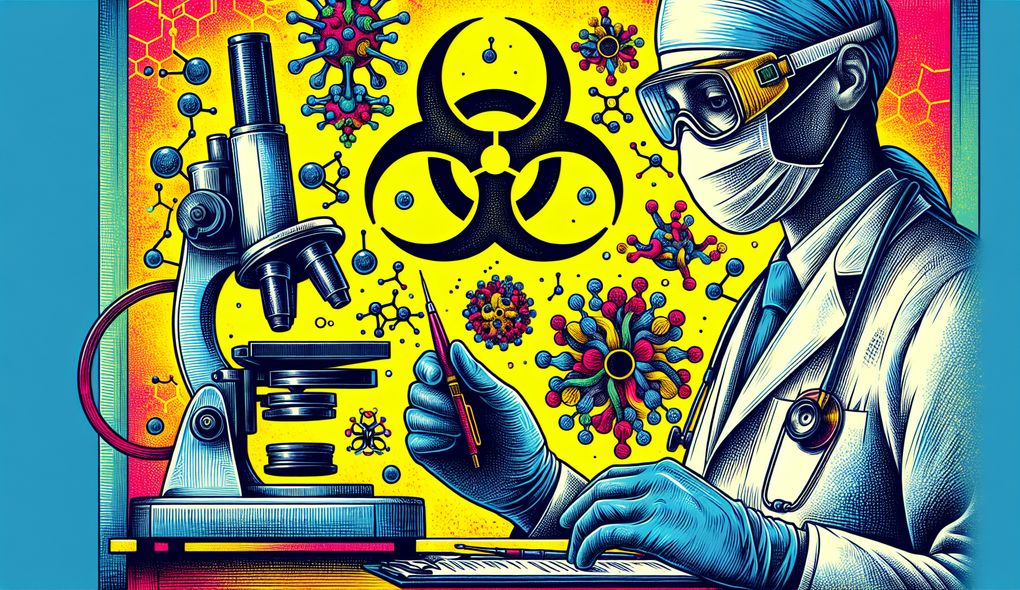What qualifications do you have for the role of a Medical Toxicologist?
INTERMEDIATE LEVEL

Sample answer to the question:
I have the required qualifications for the role of a Medical Toxicologist. I hold a Doctor of Medicine (MD) degree and have completed a fellowship in Medical Toxicology. I am also board certified in Medical Toxicology. In terms of experience, I have worked for 4 years in a healthcare setting, primarily in the emergency department, where I have gained extensive clinical experience in diagnosing and treating patients exposed to toxic substances. I am skilled in using medical database software and patient management systems. I also have excellent communication and teaching skills, which are crucial in educating healthcare professionals and the public about toxicological issues.
Here is a more solid answer:
I believe I am highly qualified for the role of a Medical Toxicologist. With a Doctor of Medicine (MD) degree and a fellowship in Medical Toxicology, I have acquired a strong foundation in pharmacology and toxicology. My 4 years of experience in a healthcare setting, primarily in the emergency department, have allowed me to hone my diagnostic and problem-solving skills in treating patients exposed to toxic substances. I have successfully managed cases involving poison control and substance overdose, collaborating with a multidisciplinary team to develop effective treatment protocols. My excellent communication and teaching skills have enabled me to educate healthcare professionals and the public about toxicological issues. Moreover, my proficiency in using medical database software and patient management systems has facilitated efficient patient care and documentation.
Why is this a more solid answer?
The solid answer expands upon the basic answer by providing specific examples and details that demonstrate the candidate's qualifications for the role. It highlights their strong foundation in pharmacology and toxicology, as well as their experience and skills in diagnostic and problem-solving, collaborating with a multidisciplinary team, and using medical database software and patient management systems. However, it could still be improved by incorporating more examples of critical thinking and decision-making abilities.
An example of a exceptional answer:
I am highly confident in my qualifications for the role of a Medical Toxicologist. With a Doctor of Medicine (MD) degree and board certification in Medical Toxicology, I possess comprehensive knowledge and expertise in pharmacology and toxicology. Throughout my 4 years of experience in the emergency department, I have encountered diverse cases of toxic exposure and poisonings, applying my sharp diagnostic and problem-solving skills to provide accurate and timely treatment. I am adept at conducting risk assessments and developing personalized management plans for patients, integrating the latest research on toxic substances. My critical thinking and decision-making abilities have been honed by collaborating with a multidisciplinary team of healthcare professionals to ensure optimal patient outcomes. In addition, my excellent communication and teaching skills have allowed me to educate medical students, residents, and the public about poison control and substance overdose management. I am well-versed in utilizing medical database software and patient management systems, streamlining documentation and facilitating seamless patient care. My dedication to staying up-to-date with advancements in toxicology is evident through my active participation in research projects on the effects of toxins on human health. Overall, my passion for medical toxicology and my comprehensive qualifications make me a strong candidate for this role.
Why is this an exceptional answer?
The exceptional answer provides a more detailed and comprehensive overview of the candidate's qualifications for the role of a Medical Toxicologist. It emphasizes their comprehensive knowledge and expertise in pharmacology and toxicology, as well as their strong diagnostic and problem-solving skills. It also highlights their ability to conduct risk assessments, collaborate effectively in a multidisciplinary team, and educate others about toxicological issues. The answer showcases the candidate's dedication to staying up-to-date with advancements in toxicology through their active participation in research projects. Overall, it presents a compelling case for the candidate as an exceptional fit for the role. However, one area for improvement could be to provide more specific examples of critical thinking and decision-making abilities.
How to prepare for this question:
- 1. Familiarize yourself with the clinical effects of common toxins and their management.
- 2. Review your knowledge of pharmacology and toxicology through textbooks or online resources.
- 3. Reflect on specific cases or experiences where you demonstrated diagnostic and problem-solving skills in a healthcare setting.
- 4. Practice explaining complex medical concepts in a clear and concise manner to improve your communication skills.
- 5. Stay updated with the latest research and advancements in the field of toxicology.
- 6. Familiarize yourself with medical database software and patient management systems commonly used in healthcare settings.
What are interviewers evaluating with this question?
- diagnostic and problem-solving skills
- expertise in pharmacology and toxicology
- ability to work collaboratively in a multidisciplinary team
- excellent communication and teaching skills
- critical thinking and decision-making abilities
- proficiency in using medical database software and patient management systems

